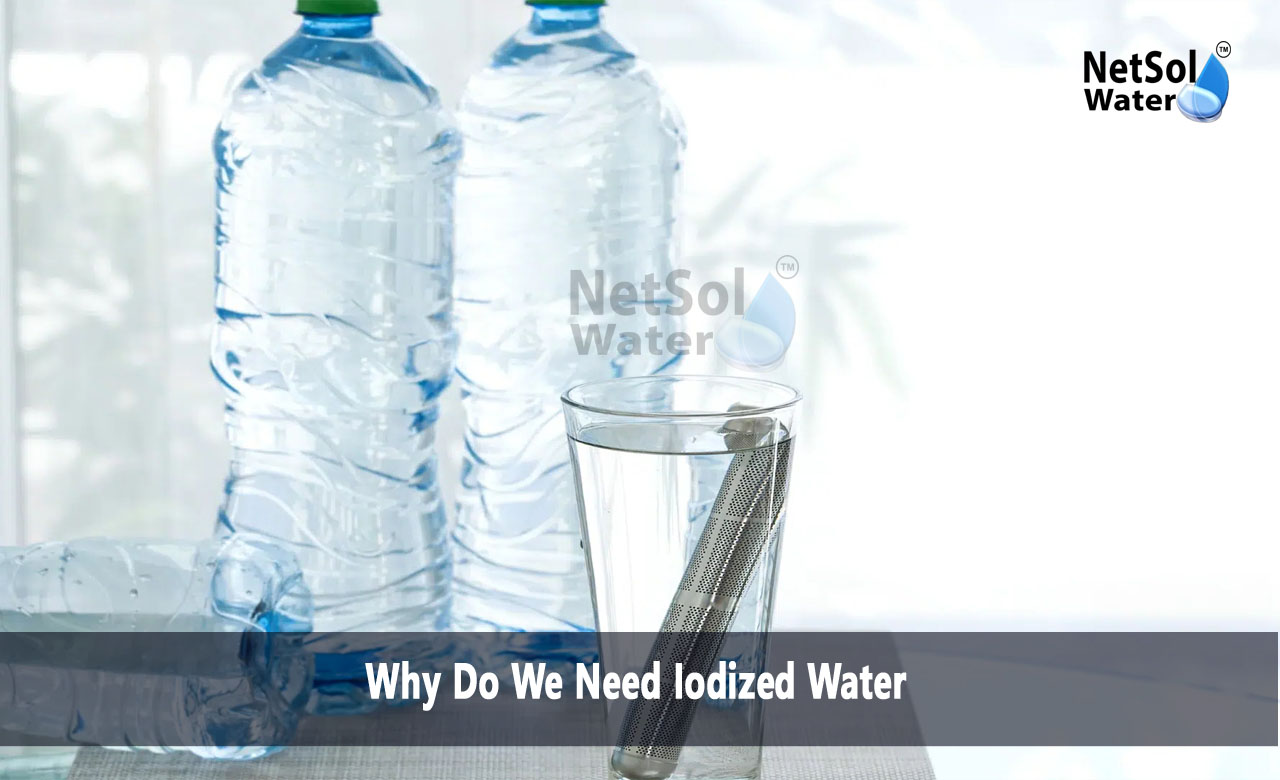Why Do We Need Iodized Water?
Iodine plays a key role in keeping our bodies healthy. It helps the thyroid gland make hormones that control growth and energy use. When people lack iodine, their bodies slow down. They may feel tired, gain weight, or develop a goiter. In some cases, they risk delays in mental development. Many foods supply iodine, but some regions lack it in soil and water. Adding iodine to drinking water can fill that gap and boost daily intake. In this blog, we explain why iodized water matters. We begin with iodine’s role in the human body. Next, we cover daily intake recommendations. Then we list common iodine sources. Finally, we assess whether iodized water offers a reliable supply.
The Role of Iodine in the Human Body
Iodine supports thyroid health and metabolic balance. Let us have a look at some key functions and impacts.
Thyroid Hormone Production
The thyroid gland uses iodine to create thyroxine and triiodothyronine. These hormones set the rate at which cells burn energy. They also guide physical growth and brain function in children.
Growth and Development
In infants and toddlers, thyroid hormones shape brain wiring. Getting enough iodine helps children learn and speak clearly. A shortage can limit both mental and physical growth.
Metabolic Balance
Iodine helps you maintain normal body temperature and heart rate. It also influences digestion and muscle strength. When you lack iodine, your body may slow down and store extra fat.
Read: Commercial RO Plant Manufacturer
How Much Iodine Do We Need?
Daily needs for iodine change with age and life stage. Let us have a look at recommended intake levels.
Adults
Health experts recommend that an adult get 150 micrograms of iodine each day. This amount keeps thyroid levels steady and supports consistent energy use.
Pregnant and Breastfeeding Women
Expectant mothers need about 250 micrograms daily. Nursing women require up to 290 micrograms. These higher levels ensure proper fetal growth and a healthy milk supply.
Children
Kids need less iodine than adults. A child aged one to eight should have about 90 micrograms a day. Teenagers need around 120 micrograms to fuel their rapid growth and activity.
Common Sources of Iodine
People obtain iodine through both food and water. Let us have a look at main dietary sources.
Seafood and Seaweed
Fish, shrimp and seaweed grow in oceans rich in iodine. Even a single serving can deliver a large dose.
Dairy and Eggs
Milk and eggs contain iodine from animal feed and iodine?based sanitizers. These items provide a steady supply for many diets.
Iodized Salt
Food producers add iodine to table salt as a low?cost public health measure. Just a small pinch at mealtime can cover up to a quarter of your daily needs.
Is Iodized Water a Viable Source?
Iodizing water offers a steady way to close iodine gaps when diet or salt fall short. Let us have a look at its pros and cons.
Consistent Intake
Most people drink water throughout the day. By adding a fixed dose of iodine, each glass can help meet daily targets. This method works well in regions with low soil iodine.
Controlled Dosage
Water treatment plants can set iodine levels precisely. This control helps people avoid taking too little or too much iodine.
Stability Concerns
Iodine can evaporate or react with minerals in water over time. Producers must package and test the water regularly to keep iodine levels stable.
Limited Research
We lack large clinical trials on long?term use of iodized water. Most evidence comes from small studies or animal tests. Health experts still recommend iodized salt and iodine?rich foods first.
Conclusion
Iodine supports thyroid function, growth and energy balance. People who lack seafood or dairy in their diets face a higher risk of deficiency. Iodized water can offer a steady source of iodine alongside salt and food. However, it needs careful dosing and routine testing to work well. If you suspect you may lack iodine, consult a healthcare provider. Ask about testing and safe supplements. Finally, consider how iodized water could help your community meet daily iodine needs.
Contact Netsol Water at:
Phone: +91-9650608473, Email: enquiry@netsolwater.com



